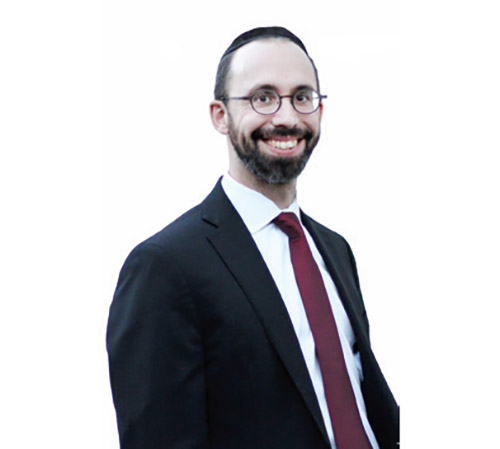
A few years ago I discovered I had celiac disease, which means I cannot eat gluten. No more regular challah, cookies and cakes. At home, it’s fairly easy, as there are now many gluten-free options at the supermarket. However, when going to a simcha or to someone else for a meal, the challenges multiply. Most people don’t think of gluten being everywhere: soups thickened with flour, croutons in the salad, matzah balls, breaded chicken. It can get complicated!
This past week I spent Shabbos with my mechutanim (my daughter’s new in-laws) for the Shabbos aufruf. I brought my gluten-free roll and figured I wouldn’t starve, but I wasn’t sure what I would be able to eat. At dinner Friday night, my mechutanim told me they had gluten-free options for all the courses! I could eat the soup, the main dishes, and even the kugel. It made me feel so welcome and comfortable!
This illustrates a novel explanation of an occurrence in Parshas Vayigash.
After Yosef revealed himself to his brothers and sent them back to his father with gifts of food, it says, “And Yaakov saw the wagons that Yosef sent him, and Yaakov’s spirit became revitalized” (Vayigash 45:27). What was so special about these wagons that gave Yaakov a new spirit? Rashi says Yosef was communicating a subtle message to Yaakov with the wagons.
The last Torah topic that Yaakov learned with Yosef before Yosef was sold was the topic of eglah arufah, which deals with the responsibility of two adjacent towns for the death of a traveler whose body was found between the towns. The word agalos, wagons—is similar to eglah, calf, thus assuring Yaakov that Yosef was still immersed in his Torah learning, even after 22 years in a foreign nation. The fact that Yosef was physically alive would bring great joy to Yaakov, but it would have been a great disappointment for Yaakov if Yosef had deteriorated spiritually, for then his dreams of Yosef being the future of klal Yisrael would be smashed. Seeing the wagons and the message that Yosef was sending rejuvenated Yaakov. His joy knew no bounds.
Still, there are deeper messages here beyond word similarity. Rabbi Yisroel Belsky, zt”l, explains that the wagons Yosef had sent were demonstrating to Yaakov that Yosef still understood the underlying message of the eglah arufah. Put simply, when a traveler was found dead in between two cities, the last city in which the traveler had entered is held responsible for his death, as they did not take care to send him on his way safely and did not provide him a meal for the road. Their lack of forethought and kindness makes them guilty of his death. Rav Belsky explains that traveling then was fraught with danger. There was no GPS, no rest areas for coffee or snacks, and there were many robbers waiting in ambush. When a city gave a traveler food for the road, it gave him a sense of security, a feeling of being cared for, and hence the calmness and clear mindedness to navigate the roads and protect himself from robbers.
A pivotal quality of the Jewish nation is chesed. When Yaakov heard Yosef was alive, he was concerned that Yosef had absorbed the Egyptian nature and lost his Jewish character traits. A Jewish leader needs both Torah knowledge and the good middos that go with it. These wagons for Yaakov, laden with food for the journey back to Yosef, embodied the message of the eglah arufah, demonstrating kindness and consideration for the physical and emotional well-being of another individual. The wagons showed Yosef was still alive, engrossed in Torah, and he fully possessed the inner sensitivities of a Jew. Despite 22 years in exile, he was untainted by Egypt and dedicated to the values Yaakov had instilled in him.
When my wife started working full-time, I took upon myself the responsibility of packing lunch for my children for school each day. Sometimes I think some of my children are now old enough to do this on their own. But then I remember my mother making lunch for me, even when I was in high school. I remember how good that made me feel. The food was great, but the sense of security the packed lunch gave me was priceless.
Packing a meal seems like a classic Jewish mother thing to do. But it’s a lot more than that. It’s an expression of giving, an expression of love, that provides security for the children. Pack a lunch for your kids, and the underlying message of love and caring—as reflected in our parsha—will last a lifetime and will help motivate your children to do the same for their children; a wonderful legacy!
By Rabbi Baruch Bodenheim
Rabbi Baruch Bodenheim is the associate rosh yeshiva of Passaic Torah Institute (PTI)/Yeshiva Ner Boruch. PTI has attracted people from all over northern New Jersey, including Teaneck, Paramus, Rockaway and Fair Lawn. He initiated and continues to lead a multi-level Gemara-learning program. Recently he has spread out beyond PTI to begin a weekly beis medrash program with in-depth chavrusa learning in Livingston, Springfield, and Fort Lee. His email is [email protected].













